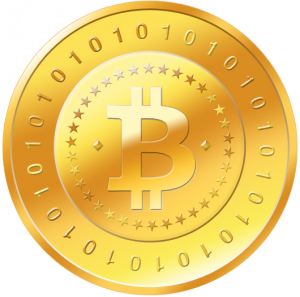A Little Altcoin Sanity: Why Are There Alternatives to Bitcoin?
This is the first article of the series “A Little Altcoin Sanity.” The series will provide brief, substantive, and informative discussion of topics in altcoins (or alternative cryptocurrencies, if you prefer, meaning “non-Bitcoin”). This first article will be a bit different than what you’ll see from me in the future. Before I begin discussing specific altcoins and the value in them, I want to discuss why you should care; why they matter at all.
So, to begin, what is an altcoin?
 Bitcoin is open-source, which means that anyone can go in and edit the code to fiddle with it and release an altered version. This is essentially how altcoins originated: Someone messed with the Bitcoin code to make it operate with different parameters, and then released it into the wild. People picked it up and began using it. Contrary to popular belief, Litecoin is not actually the first altcoin; Namecoin is.
Bitcoin is open-source, which means that anyone can go in and edit the code to fiddle with it and release an altered version. This is essentially how altcoins originated: Someone messed with the Bitcoin code to make it operate with different parameters, and then released it into the wild. People picked it up and began using it. Contrary to popular belief, Litecoin is not actually the first altcoin; Namecoin is.
More important, though, than WHAT an altcoin is is WHY it is. Why do they exist at all — not why were they created, but why do they persist; why does the market funnel resources into them?
Daniel Krawisz of the Nakamoto Institute has argued that all altcoins are useless, and will die, for a variety of reasons, which you can read here. One of the critical reasons he gives is the network effect of Bitcoin. Essentially, Krawisz argues that because Bitcoin has a market capitalization and liquidity that dwarfs all the other coins, the other coins are doomed. Given the choice between currency A and B, the obvious answer is to choose the larger, more liquid, and more commonly accepted option — Bitcoin, in this case. It’s far less risky.
But that is a part of the point. Altcoins are much higher in risk than Bitcoin, but that is the case because the reward is immensely higher. While I don’t agree with Krawisz that currency is necessarily a winner-take-all system, a point which his argumentation seems to assume a priori in some ways, imagine that we take on the same assumption (that currency is winner-take-all) as we move into a hypothetical.
 An individual has $1000 to invest in a single cryptocurrency (this is not optimal strategy in my view, but we’ll pretend it is the strategy used). Bitcoin is very likely to be the winning cryptocurrency, defeating all others, and then defeating all fiat currencies eventually as a result of its various comparative advantages. As a result of this, Bitcoin becomes the global currency, and anyone who invested $1000 in Bitcoin at this stage ends up owning a very substantial portion of total global money supply ($1000 is about 1.5BTC right now, 21 million BTC / 7 billion people = 0.003 BTC per person; 1.5 / 0.003 = 500 times more than the ‘average’–and that’s before accounting for all the lost coins or population growth).
An individual has $1000 to invest in a single cryptocurrency (this is not optimal strategy in my view, but we’ll pretend it is the strategy used). Bitcoin is very likely to be the winning cryptocurrency, defeating all others, and then defeating all fiat currencies eventually as a result of its various comparative advantages. As a result of this, Bitcoin becomes the global currency, and anyone who invested $1000 in Bitcoin at this stage ends up owning a very substantial portion of total global money supply ($1000 is about 1.5BTC right now, 21 million BTC / 7 billion people = 0.003 BTC per person; 1.5 / 0.003 = 500 times more than the ‘average’–and that’s before accounting for all the lost coins or population growth).
For comparative purposes, there is an estimated $68TN in the entire world money supply (yes, I know it’s much more complicated than that, but bear with me; simplicity is important for analogies). Divide that by the world population of 7 billion, and you get an ownership of about $9,700 per capita, if everyone owned exactly the same amount. 500 times more than that, as in our Bitcoin example, is ~$4.8MM. Enough to live exceptionally comfortably, but perhaps not enough to do truly whatever you might want.
Imagine instead that Litecoin ends up defeating Bitcoin, as a result of a black swan event, and that our hypothetical individual had invested $1000 in Litecoin. That buys them ~125 LTC, or (sparing you the math), about 10000 times more wealth than the average person would own in “Litecoin-world.” To return to our earlier comparison with the current global money supply denominated in USD, that would be the equivalent of owning almost $100MM.
Given Krawisz’s assumption that currency is winner-take-all as intrinsic to the market, we can see that the market has decided to offer 20:1 odds of Litecoin defeating Bitcoin and subsequently the rest of cryptocurrency. If I agreed with Daniel, this would look like an interesting potential bet — a 5% chance is perhaps not all that far off from reality. Certainly, this demonstrates that the risk of an altcoin carries with it immense potential rewards.
To return to the point, though: What if Krawisz is wrong; what if currency isn’t winner-take-all? Then we have two potential cases to consider. An altcoin could become a global currency, dominate the world, and turn early adopters into society’s new elite. Or an altcoin could simply join the ranks of the “commonly-accepted cryptocurrencies” and anticipate a large future market capitalization. In that scenario, altcoins could be thought of as not dissimilar to credit card networks — Dish, Mastercard, Visa; Bitcoin, Litecoin, Dogecoin.
To sum up, for the time being, the existence of alternative cryptocurrency can be justified in a few distinct ways:
1. Risk vs. Reward: the more people place their money in the safe option (Bitcoin), the more attractive riskier options become as hedges against its catastrophic failure.
2. Technological innovation: Bitcoin can lose to an altcoin that offers something truly amazing. If you can find it before it surpasses Bitcoin, you win. You can consider many altcoin investments to be speculation on the potential of a coin to surpass Bitcoin for one of a number of technological reasons; be it transaction speed, distribution mechanism, method of blockchain security, exceptional added features, and so on.
3. The potential of a multi-currency world, where different coins make up the entire money supply. Perhaps a world of 2-5 currencies, or a world of 100s of coins all traded in and backed by Bitcoin. If this can occur, then investments in successful altcoins will be incredibly profitable, though not to the degree of our Litecoin example above — but still enough to make a cartoon character’s eyes turn into, not dollar signs, but Bitcoin symbols. We’re living in the future now; let’s make sure to update our humorous cartoon metaphors.
And with that, you can expect to see this series begin in earnest. Expect to see several articles weekly here on CoinReport from me, covering the altcoin market in detail from a (mostly) sane perspective. I hope you’ll enjoy.
The first topic will be the aforementioned Litecoin. As king of the alts, it’s certainly deserving of the first spot, no matter how disastrous its recent fall from grace has been.


![[Guest Post] The True Use Cases for Bitcoin and Its Role in Banking the Unbanked](https://coinreport.net/wp-content/uploads/2019/04/Ray-Youssef-Paxful-CEO-400x230.jpg)

![[Guest Post] The Lost Treasure of Quadriga CX: A Teachable Moment](https://coinreport.net/wp-content/uploads/2019/03/Patrick-Burke-Photo-400x230.jpg)








